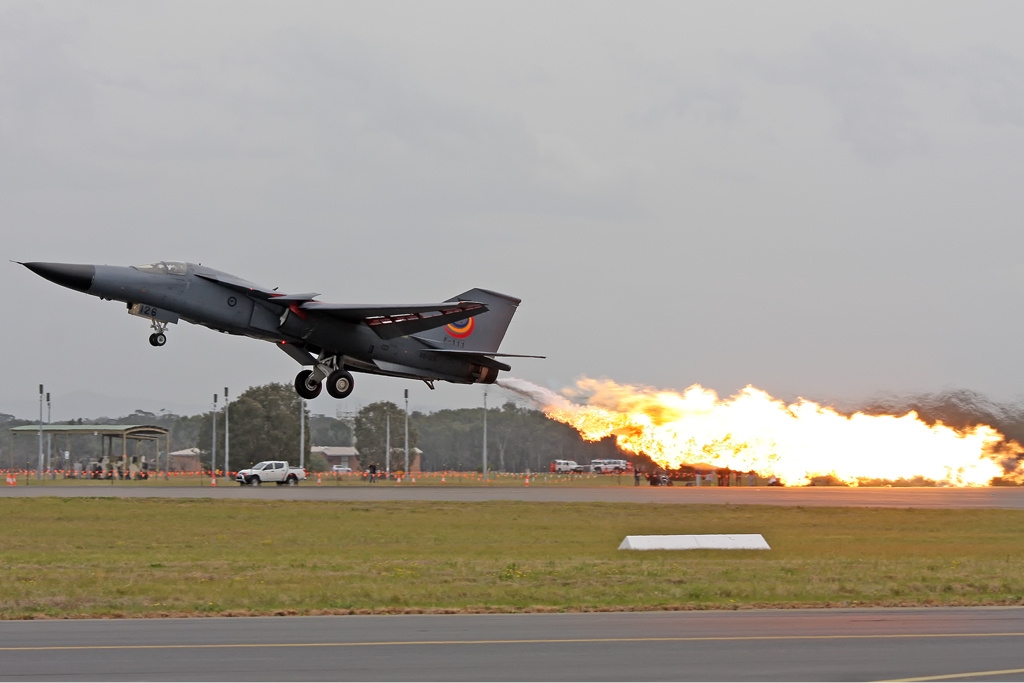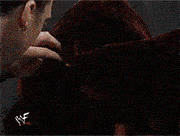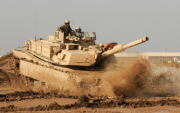|
SeanBeansShako posted:You asking for say, an order given under fire to react to a crisis in a certain scenario here? Essentially, yeah - like what should a commander keep in mind when drafting up an order in a hurry? And what kind of sloppiness should be avoided? What specifically is worth taking the time to make sure you get right? Nenonen posted:World wonders... bees everywhere posted:For a few years I was the guy stuck with writing the operations orders and so I came to learn a lot about the military decision-making process. In my experience, there is a lot of careful attention paid to being extremely clear and concise. Certain words have a very strict doctrinal definition (especially any kind of "task") so those words are chosen carefully. The best-written plans are those that issue a clear task & purpose to all while giving subordinate units enough time and autonomy to make their own effective plans and conduct rehearsals at different levels. Thanks! These seem like good starting points.
|
|
|
|

|
| # ? Jun 3, 2024 16:56 |
|
Ensign Expendable posted:Canada, unless you're lumping the entire Commonwealth with the UK. Nono, I phrased it poorly again. When I said 'On Europe' I meant on the continent, anyone without the benefit of a decent moat between them and the Germans.
|
|
|
|
I was watching "Letters from Iwo Jima" and the first combat scene is American planes attacking the island. The movie shows the classic "plane firing bullets while a Japanese soldier runs from them until he is hit". Would American planes have attacked Japanese soldiers on islands with bullets? The scene also showed them dropping bombs. It seems much more effective to drop bombs than fire bullets at soldiers from a plane, but I could be wrong.
|
|
|
|
Tomn posted:Essentially, yeah - like what should a commander keep in mind when drafting up an order in a hurry? And what kind of sloppiness should be avoided? What specifically is worth taking the time to make sure you get right? Maybe keep an eye on how they use “with”? It naturally leads to structural ambiguities in English. Like : George saw the man with the telescope. That sentence can mean that either George or the man have the telescope. You can make this clearer by changing the verb or the imbedded noun phrase, but I’m not messing with the grammar and this is just semantic priming. George saw the man with the briefcase (People hold briefcases all the time, but they are poor visual aids.) George stabbed the man with the knife. (Usually the one doing the stabbing has the knife.) All three of these sentences have the exact same syntax, it’s a basic-bitch transitive finite clause. The only question is where that prepositional phrase (“with yadda yadda”)is attaching to. It can either be relatively low, modifying the sentential object (“the man”) or it can be “higher up” modifying the whole verb phrase (i.e. the verb and its complement, like “eat an apple” or “defenestrate a Catholic”). A fact we can make trivially obvious by having multiple “with” phrases : George stabbed the man with the briefcase with a knife. (Keeping in mind that native English speakers tend to make a frustrated face when you do this, despite judging it grammatical and unambiguous.) I’m figuring that the US Army has had some history with the fact that English isn’t great about distinguishing this naturally, just because “shoot the X with the Y” can be about how to shoot or who to shoot. This seems like it could be problematic. Just a Sunday evening bored guess though.
|
|
|
|
Kvlt! posted:I was watching "Letters from Iwo Jima" and the first combat scene is American planes attacking the island. The movie shows the classic "plane firing bullets while a Japanese soldier runs from them until he is hit". After the plane already dropped its bombs, it'll often attack target of opportunity with guns. Realistically it's going to be very difficult to find individual soldier to strafe (doubly so on Iwo Jima where the Japanese had months to dig-in), so the target is more often train or truck.
|
|
|
|
Kvlt! posted:I was watching "Letters from Iwo Jima" and the first combat scene is American planes attacking the island. The movie shows the classic "plane firing bullets while a Japanese soldier runs from them until he is hit". Targets of opportunity. An individual soldier might not be too attractive, but there are plenty of examples of airplanes attacking troop columns. There's one anecdote I remember (can't recall the source, might have been a memoir) where one of the big POW camps was being evacuated by the Germans ahead of the advancing allied armies at the end of WW2. They got mistaken for a troop column and strafed by some P47s. Whoever the author was, either he or the guy he was with ended up with a spent .50 cal round embedded in some shoes that were in a pack. Got lucky, it was probably a ricochet to begin with, but yikes. Edit: I think it might have been Hub Zemke's memoir now that I think about it, what with the irony of him almost getting got by a fellow P47 pilot.
|
|
|
Tomn posted:Essentially, yeah - like what should a commander keep in mind when drafting up an order in a hurry? And what kind of sloppiness should be avoided? What specifically is worth taking the time to make sure you get right? If you want a scenario to study over with this perhaps Chamberlain and the 2nd Maine holding Little Round Top during Gettysburg?
|
|
|
|
|
Xiahou Dun posted:Maybe keep an eye on how they use “with”? It naturally leads to structural ambiguities in English. Like : I met a guy whose ongoing linguistics research is about that ambiguity and how we take a meaning from it. Apparently the absent of context understanding of ambiguous terms is something that maps to other languages as well. It was pretty interesting to have him describe how some of the research is done.
|
|
|
|
I was looking up the effective ranges of smoothbore muskets because I knew it was longer than popular perception and sometimes considerably but I found this link which claims it's a lot farther than even what I've seen on the upper bounds. It does clarify the effective ranges are much lower but they are still quite a bit further than what I'd generally hear. Presumably it means it was effective for fire en masse rather than for individually as you'd assume. It's pretty interesting but I don't know enough to dispute it one way or another
|
|
|
|
I suppose "effective" has two descriptions applied to it here. Effective can mean accurate and capable of inflicting damage. Effective can also mean useful in mass volley fire, because it is still capable of inflicting damage, even though it is improbable that you'll actually hit what you are aiming for.
|
|
|
|
I think this is just a matter of fuzziness over what "effective" means here. A well known and often recommended tactic was for infantry to hold their fire and advance close to the enemy, fire one volley and then charge to bayonet. Long range musketry presumably cannot have been "effective" enough to make that a bad idea. Edit: Looking at the article, basically all their sources are in the context of fortifications and fortification design. I think that's a very different context from field battles which people are usually thinking about. Being in "effective musket range" is probably more a matter of "being able to be harassed by the odd enemy taking a pot shot", vs "the ideal range you fire a volley at, to really gently caress your enemy up". I think the examples in http://napoleonistyka.atspace.com/infantry_tactics_2.htm are more valuable for field battles. Fangz fucked around with this message at 11:38 on Jun 5, 2023 |
|
|
|
Fangz posted:I think this is just a matter of fuzziness over what "effective" means here. A well known and often recommended tactic was for infantry to hold their fire and advance close to the enemy, fire one volley and then charge to bayonet. Long range musketry presumably cannot have been "effective" enough to make that a bad idea. This also has to do with the tactical issues of reloading a musket while advancing: it takes a long time (relatively) and you need to stop to do it. This tends to both breakup the cohesion of the advance and to sap its momentum. It was generally thought that these factors made it not worth attempting reload for a second volley while advancing. Indeed my understanding is that a lot of commanders even felt that the loss of momentum from pausing for even the single pre-loaded volley was not worth it and would have their troops advance to contact without firing at all.
|
|
|
|
The point I'm making is more on the defender's side - the time it takes to advance 300 yards while trying to keep cohesion is enough for decently trained defending troops to get something like a half-dozen volleys off. The fact that these charges often work means that under real battlefield conditions, stress, smoke, loss of discipline etc, as well as inaccuracy means that musket fire alone can't effectively stop that advancing body of men in many cases.
|
|
|
|
What about the context of the champlain naval battles would they just mean "we're in lucky hit range" or would that be something they did regularly
|
|
|
|
how much fun were soldiers having while they marched into volleys of musket fire, tho? Thats the important question here
|
|
|
|
bertran de born-rear end mfs https://deremilitari.org/2014/03/two-poems-by-the-twelfth-century-knight-troubadour-bertran-de-born/
|
|
|
poisonpill posted:how much fun were soldiers having while they marched into volleys of musket fire, tho? Thats the important question here
|
|
|
|
poisonpill posted:how much fun were soldiers having while they marched into volleys of musket fire, tho? Thats the important question here Not as much fun as the dudes thinking it's cute to try and stop the slow rolling iron sphere rolling towards them were having.
|
|
|
|
|
I think I could kick the cannonball, it's moving so slowly after all.
|
|
|
zoux posted:I think I could kick the cannonball, it's moving so slowly after all. Congratulations in kickstarting your future career as a maimed beggar back home without even firing a shot!
|
|
|
|
|
poisonpill posted:how much fun were soldiers having while they marched into volleys of musket fire, tho? Thats the important question here If you don't like it, clearly you lack élan
|
|
|
|
I saw a british world war 2 training video, the gist of which was "If you're being strafed by a plane everyone get down and start volley firing at it". Instead of in the case of the video seeking cover in the densely wooded area five feet to their side. Is doing that really gonna be effective? Even if it is, is downing one plane and maybe one pilot worth your company taking some amount of MG fire and casualties? is a pilot even gonna notice they're taking shots unless they actually get hit in a vital area?
Defenestrategy fucked around with this message at 18:01 on Jun 5, 2023 |
|
|
|
Defenestrategy posted:I saw a british world war 2 training video, the gist of which was "If you're being strafed by a plane everyone get down and start volley firing at it". Instead of in the case of the video seeking cover in the densely wooded area five feet to their side. Is doing that really gonna be effective? Even if it is, is downing one plane and maybe one pilot worth your company taking some amount of MG fire and casualties? is a pilot even gonna notice they're taking shots unless they actually get hit in a vital area? Strafing is looking for targets of opportunity. “Plonk plink plonk” from rifle fire around the fuselage of your plane very much causes re-evaluation whether that is a “target of opportunity” or an unnecessary risk. And yes, a rifle-caliber hits would very likely draw the attention of a pilot, any “that does not usually happen” noise in a single-engine plane is a sign of “pay attention to this and figure it out before it gets you”
|
|
|
Defenestrategy posted:I saw a british world war 2 training video, the gist of which was "If you're being strafed by a plane everyone get down and start volley firing at it". Instead of in the case of the video seeking cover in the densely wooded area five feet to their side. Is doing that really gonna be effective? Even if it is, is downing one plane and maybe one pilot worth your company taking some amount of MG fire and casualties? is a pilot even gonna notice they're taking shots unless they actually get hit in a vital area? That kind of ground fire can be useful even if it doesn't hit anything. Pilots tend not to like flying into bullets, so tons of muzzle flashes can get the pilot to break off or not shoot nearly as effectively. I suspect that the creators of the film were intending the advice for places where cover wouldn't be available, but were constrained by filming location.
|
|
|
|
|
Also from the perspective of the military at large, even if it came down to that trading a squad of infantry for a very expensive plane and a highly trained pilot is in fact a pretty good deal. The squad might disagree but to be blunt it'll take a lot longer and a lot more resources to replace the plane than the troops.
|
|
|
|
I think there's also value for there to be a clear, decisive thing to do. The trouble with taking cover in the nearby forest is that maybe half your squad thinks they can make it to the forest and half does not, and then suddenly all cohesion is gone. If your commanding officer wanted you to use the forest for cover they would have told you to do it.
|
|
|
|
Gnoman posted:That kind of ground fire can be useful even if it doesn't hit anything. Pilots tend not to like flying into bullets, so tons of muzzle flashes can get the pilot to break off or not shoot nearly as effectively. There was an AA weapon largely based off this principle. https://en.wikipedia.org/wiki/Holman_Projector Its basically just a t-shirt cannon but it shoots mills bombs. Sort of a weapon of desperation in the early days of the war. Supposedly German pilots would get nervous from all the explosions and black puffs of smoke as they thought they were proper AA guns. It's hard to hit a ship in the best of times so anything little thing to throw off the enemy pilot helps.
|
|
|
|
SerCypher posted:There was an AA weapon largely based off this principle. Early AA weapons were wild, like the unrotated projectile.
|
|
|
|
SerCypher posted:There was an AA weapon largely based off this principle. The Holman Projector was designed to be a cheap weapon that the merchant marine could put onto lots of ships. It was clearly recognized as inferior to proper AA guns, but a hell of a lot better than nothing. Imagine the psychology of being a convoy sailor, and knowing that not only were you a prime target for German anti-shipping units, but also that you had absolutely no defenses. On the plus side, the aircraft that were used to attack shipping were typically clapped-out planes that weren't good for anything else, and their pilots were accordingly shy of taking risks. wdarkk posted:Early AA weapons were wild, like the unrotated projectile. Still more practical than the 18" AA shells the Yamato carried, I'd say.
|
|
|
|
The Brits in WWII deployed AA flamethrowers as point defense against Luftwaffe raids, under the theory that suddenly encountering a wall of flame would cause most pilots to flinch and miss their targets. They turned out to be too maintenance intensive to really be worth it but it did lead to my favorite sentence in all of Wikipedia:quote:In the belief that the Luftwaffe would have very few men with circus experience, limited production of the Lagonda naval flamethrower began, with weapons being installed onto coasters working in and around the River Thames
|
|
|
|
And that in turn reminds me of FIDO, the "Fog Investigation and Dispersal Operation". The British Isles have a problem, viz. they are often foggy/smoggy, which is bad if you're a pilot looking for your runway. The solution? Run a pipe down either side of the runway, with jets placed at periodic intervals. Run aircraft fuel through the pipes, and light it on fire. The heat would disperse the fog, improving visibility enough for aircraft to land. Man, it's a good thing that the UK was able to get fuel from the USA, huh.
|
|
|
|
TooMuchAbstraction posted:And that in turn reminds me of FIDO, the "Fog Investigation and Dispersal Operation". The British Isles have a problem, viz. they are often foggy/smoggy, which is bad if you're a pilot looking for your runway. The solution? Run a pipe down either side of the runway, with jets placed at periodic intervals. Run aircraft fuel through the pipes, and light it on fire. The heat would disperse the fog, improving visibility enough for aircraft to land. https://en.m.wikipedia.org/wiki/Petroleum_Warfare_Department early war Britain is a land of contrasts no tanks, but plenty of petrol.
|
|
|
|
TooMuchAbstraction posted:And that in turn reminds me of FIDO, the "Fog Investigation and Dispersal Operation". The British Isles have a problem, viz. they are often foggy/smoggy, which is bad if you're a pilot looking for your runway. The solution? Run a pipe down either side of the runway, with jets placed at periodic intervals. Run aircraft fuel through the pipes, and light it on fire. The heat would disperse the fog, improving visibility enough for aircraft to land. Could you imagine being a German pilot in 1944 and finding that poo poo out? You're trying to break in green rear end pilots who don't have enough gas to train properly, while the loving brits are just lighting trenches of gas on fire to make the fog go away.
|
|
|
|
So the weather is so bad in Britain that you need to fight it like The Thing.
|
|
|
|
You tell your groups of soldiers to get down and shoot at incoming plqnes becquse early ww2 aircraft were slow and vulnerable enough to be threatened by it. Its not really a thing you do after like... 1942 unless youre shooting at a Storch or a Lysander or just trying to get lucky.
|
|
|
|
The AA Flamethrower was also, afaik, an attempted modification for bombers which never went to combat operations because the premise was stupid and you could just attack from a different angle, or after the ammo was used up, or if you had circus experiebce...
|
|
|
|
Jobbo_Fett posted:The AA Flamethrower was also, afaik, an attempted modification for bombers which never went to combat operations because the premise was stupid and you could just attack from a different angle, or after the ammo was used up, or if you had circus experiebce... This is also why the F-111 was the best aircraft!  Also why the Soviets were so keen on training circus professionals.
|
|
|
|
Was there any particular reason why Britain and France didn't declare war on the USSR when they invaded Poland? Did they think it would be too much of a fight?
|
|
|
|
Fell Fire posted:Was there any particular reason why Britain and France didn't declare war on the USSR when they invaded Poland? Did they think it would be too much of a fight? they were already at war with germany tf do you mean
|
|
|
|

|
| # ? Jun 3, 2024 16:56 |
|
Did you forget about the Nazis.
|
|
|













































